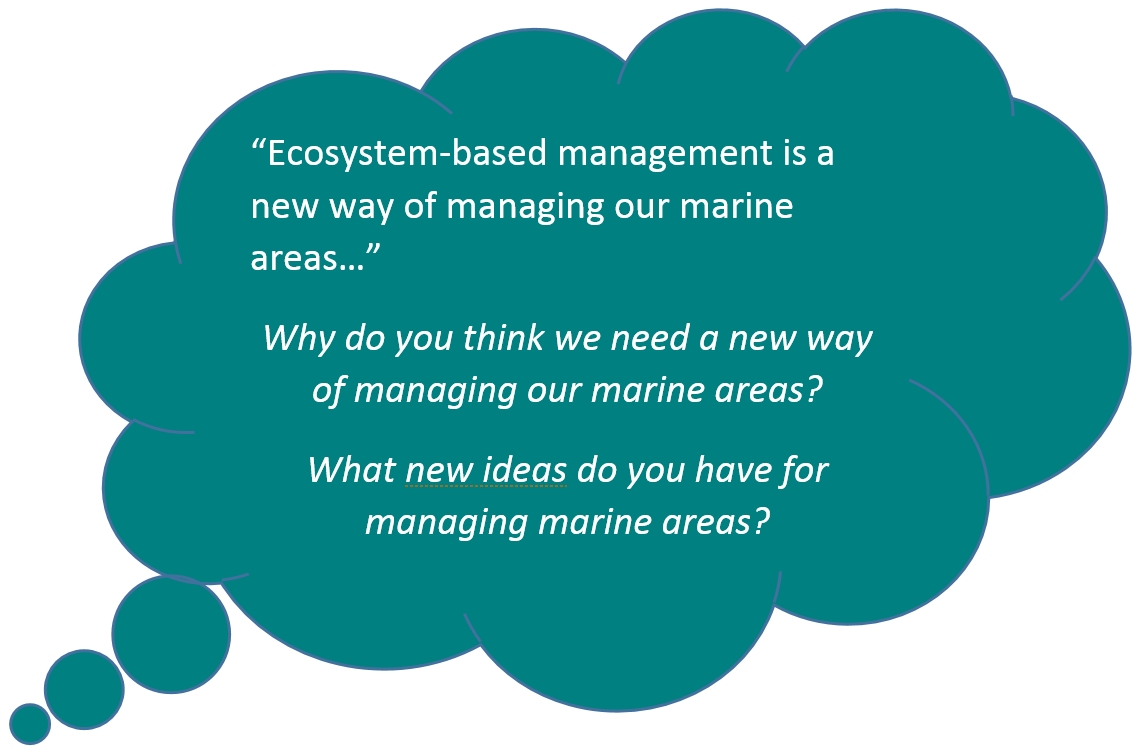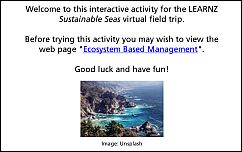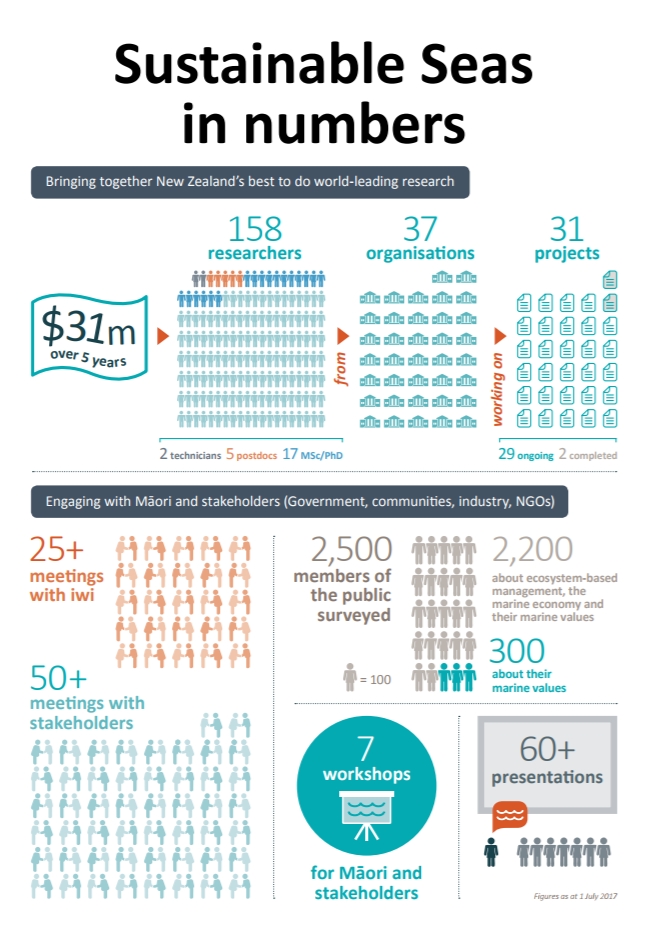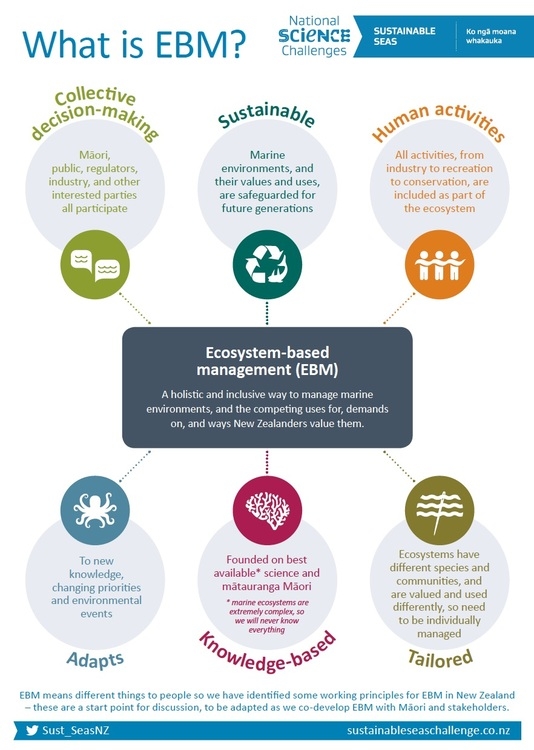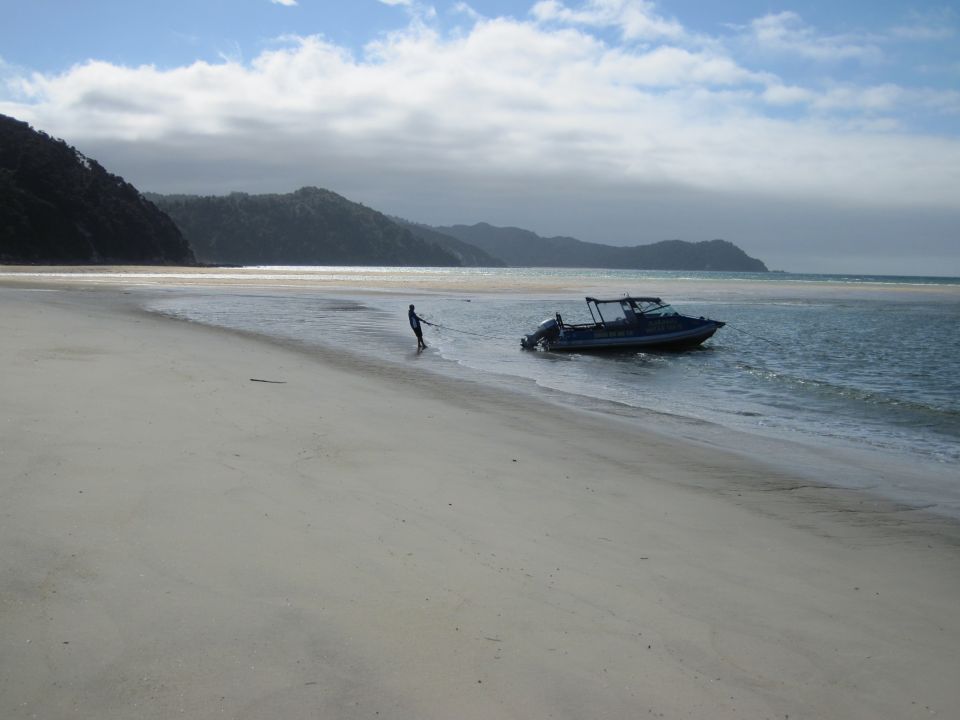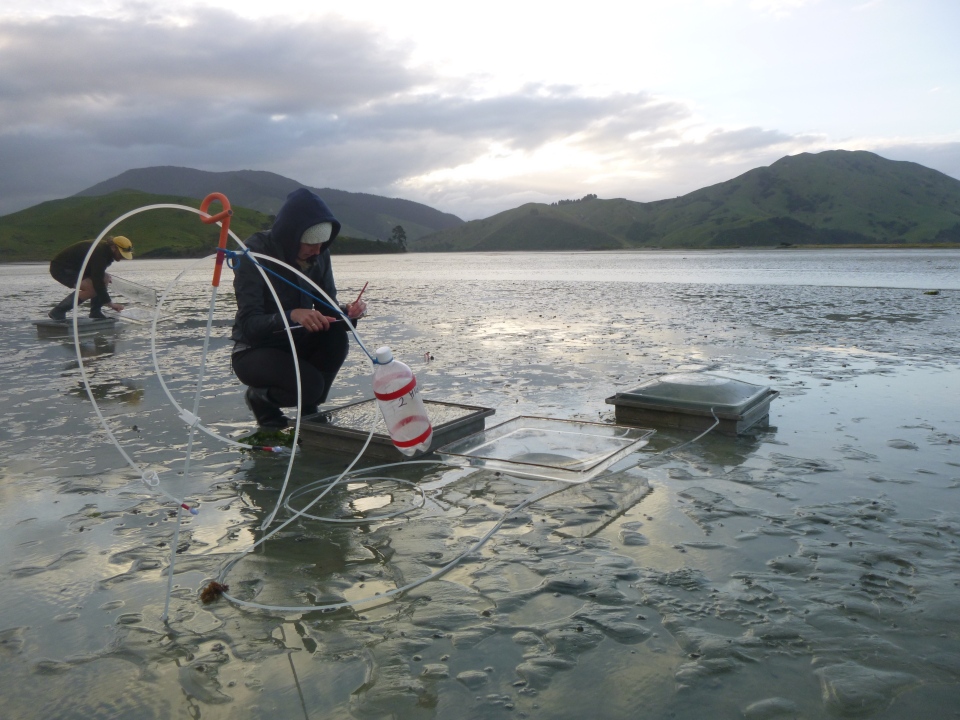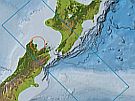Our marine environment is not only important for the estimated 65,000 species that live in it, but also for our economy, industries and communities.
The marine environment supports industries such as:
- extraction of resources – such as fish, oil and gas, and minerals
- tourism
- aquaculture
- shipping
- communications – such as submarine fibre-optic cables
- recreation.
New Zealand’s exclusive economic zone is 4 million km2 – more than 20 times the size of our land area! New Zealand governs this area and decides who can use the resources. But managing this environment is difficult because different people want to use this environment in different ways.
Old ways of managing our seas are now in need of a rethink. We can no longer look at individual species or specific issues one at a time. We need to look at all the interactions within an ecosystem and all uses and impacts, including those from people.
The Sustainable Seas National Science Challenge brings together a group of experts from science and community organisations. It includes more than 180 researchers and experts from 37 organisations working on 40 projects.
The aim of this project is to not only enhance the value we gain from our marine resources but also ensure that these resources are safeguarded for future generations.
To achieve this, experts are:
- Improving our knowledge of how the marine environment works, how they are interconnected and how human activity can affect these ecosystems
- Consulting different iwi, organisations and communities to find out how they use (or want to use) and value New Zealand’s marine environments
- Developing tools to help New Zealand better manage our marine resources for the benefit of all.
There are seven research themes, and each theme supports the development of a new way to manage our marine environment called ecosystem-based management (EBM).
Sustainable Seas has developed some working principles for EBM for Aotearoa – these will be adapted as it develops EBM with Māori, government, councils, industry, NGOs and communities. These principles are:
- Collective decision making – different organisations and communities are all able to participate in making decisions
- Sustainable – marine environments, values and uses are protected for future generations
- Human activities – all activities from industry to recreation to conservation are considered
- Adapts – to new knowledge, changing priorities and environmental events
- Knowledge based – is based upon the best available scientific knowledge and mātauranga Māori
- Tailored – to suit different ecosystems in different areas that are used and valued in different ways
Successful EBM will take into account the different ways that people value the marine environment and how different uses of the marine environment affect these values. It will ensure Māori, industry, communities and environmental groups have a voice and are involved in the way decisions are made.
EBM is a work in progress.
Sustainable Seas is trialling EBM in the Tasman and Golden Bay area because there are:
- coastal and offshore waters
- a variety of marine environments
- many different and competing uses, activities and interests.
